HVAC Companies Overton
Find Heating and Cooling Services in Overton
Receive up to 3 AC and Heating Services quotes for your project today! Compare profiles, reviews, accreditations, portfolio, etc... and choose the best deal.
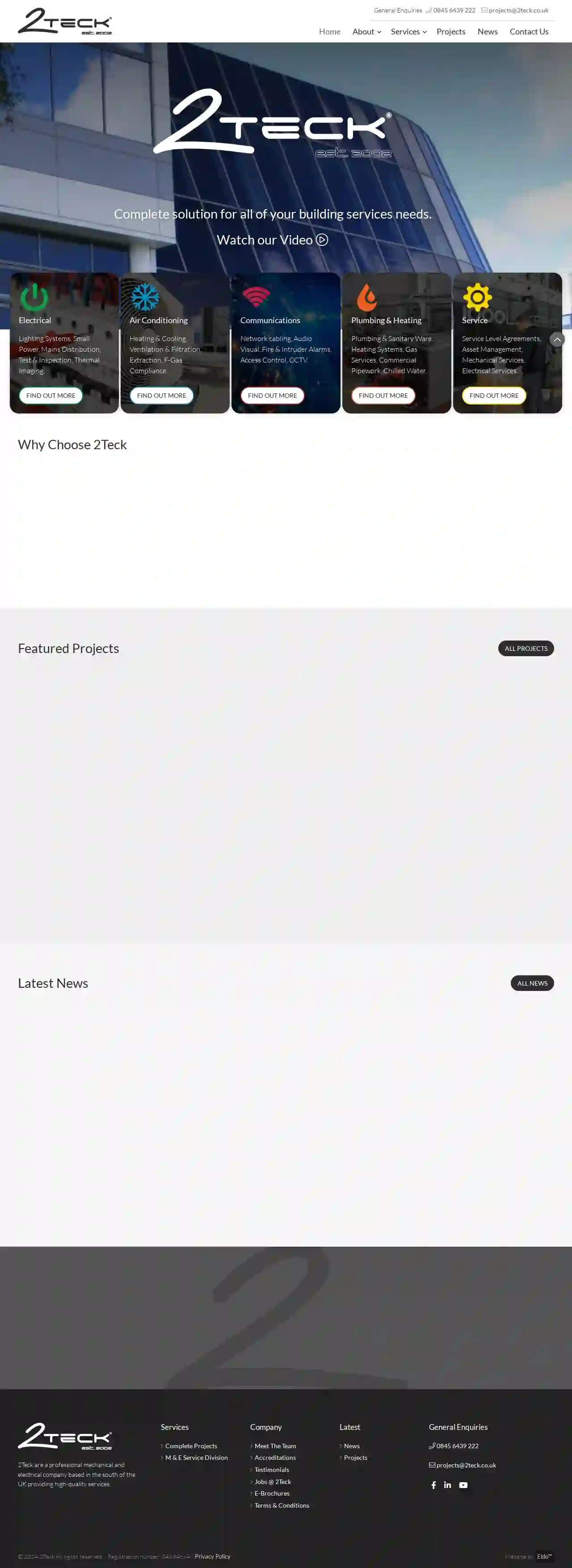
2 Teck Ltd
54 reviewsWaterlooville, GB- Services
- Why Us?
- Accreditations
- Testimonials
- Gallery
Get Quote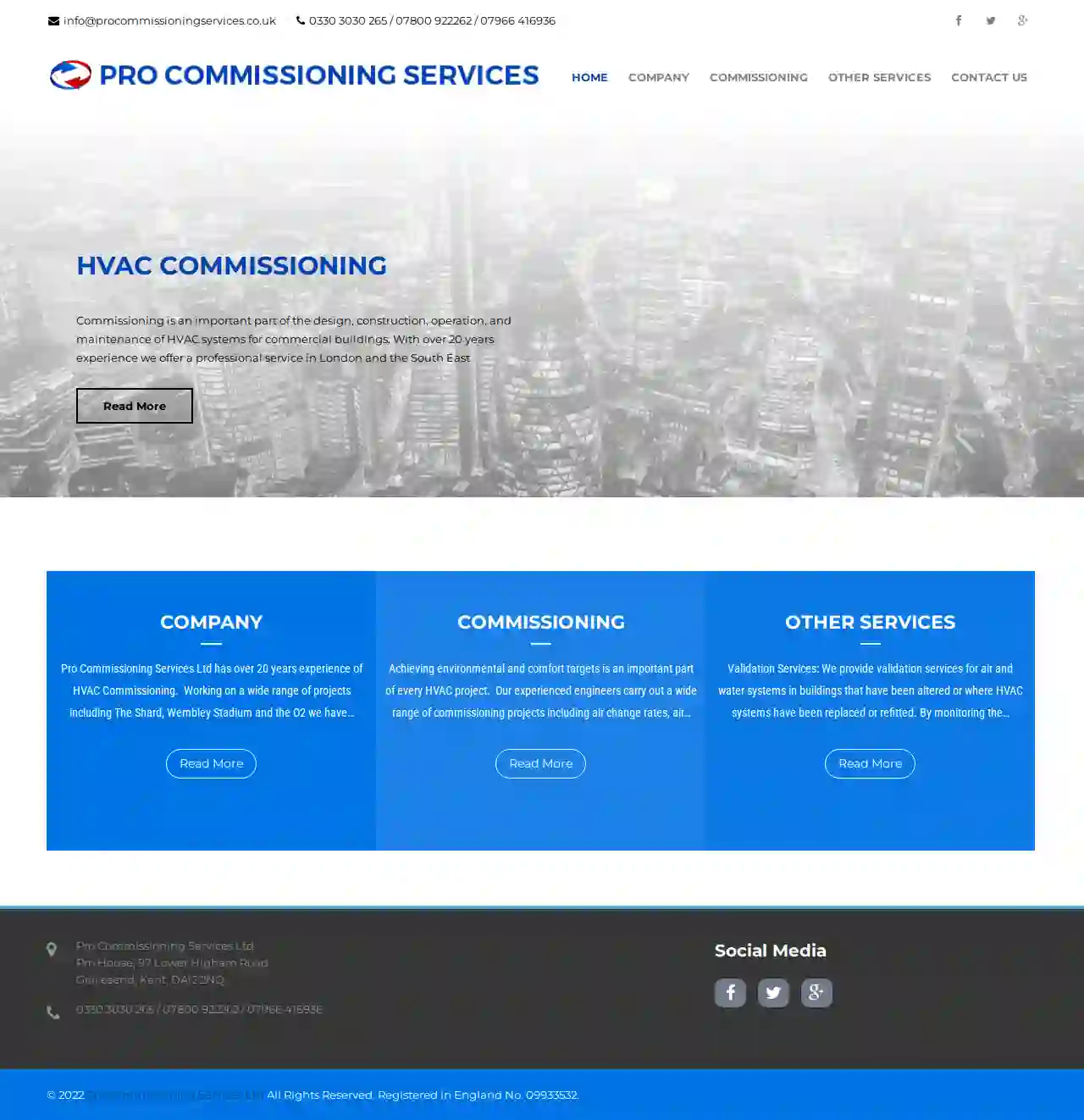
Pro Commissioning Services Ltd
97 Lower Higham Road, Gravesend, DA12 2NQ, GBPro Commissioning Services Ltd has over 20 years experience of HVAC Commissioning. Working on a wide range of projects including The Shard, Wembley Stadium and the O2 we have a proven track record of success. We are committed to providing a professional service in London and the South East. Commissioning is an important aspect and critical to every project allowing both environmental and comfort expectations to be achieved. Comfort Commissioning Services regularly carry out work on a wide range of commissioning projects, ranging from HVAC validation and commissioning to air change rates and air tightness testing. Our highly skilled and experienced team of engineers can cater for your project’s needs, regardless of size, scope or the solutions needed. We can identify problems promptly and ensure that all work is completed on time, using a range of state-of-the-art testing equipment for our environmental monitoring services and air sampling services. We follow CIBSE and BSRIA codes of practice for every job we undertake and adhere to British Standards and CSA guidelines where appropriate.
- Services
- Why Us?
- Gallery
Get Quote
D Cowan Domestic Plumbing & Heating Ltd
4.428 reviews10 Moat Walk, Gosport, PO12 2SP, GBD Cowan Domestic Plumbing & Heating Ltd are experts in the industry, providing a comprehensive range of services to residents in Hampshire and surrounding areas. With over 12 years of experience, they have gained valuable knowledge and a reputation for high-quality workmanship. From brand new bathrooms to central heating systems, no job is too big or too small for their dedicated team. Their services include bathroom refurbishments, boiler replacements, gas appliance installations, central heating systems, general repairs, gas certificates, and more. Gas Safe registered and recognised by Hampshire Trading Standards, customers can be assured they are in good hands. D Cowan Ltd prides itself on providing excellent customer service and a friendly approach. They are committed to offering free, no-obligation quotes and are always happy to discuss any project, big or small.
- Services
- Why Us?
- Accreditations
- Our Team
- Testimonials
- Gallery
Get Quote
Optimum Air Conditioning Ltd
515 reviews13 Smugglers Walk, Greenhithe, DA9 9QR, GBOptimum Air Conditioning is a team of qualified engineers with years of experience providing reliable air conditioning installations, maintenance, and repairs for both domestic and commercial clients. We pride ourselves on offering affordable prices and working with top brands like Daikin, Mitsubishi, Toshiba, Fujitsu, Samsung, and Panasonic. Our commitment to our clients extends beyond installation, ensuring a complete end-to-end solution with superior after-service support. We utilize new inverter technology for reliable installations and prioritize compliance with strict safety regulations. Our team is dedicated to meeting your specific needs and exceeding your expectations. We understand that every application is unique, and we offer bespoke design and installation solutions for commercial properties. Our dedicated service and maintenance department ensures prompt and effective service, whether it's routine maintenance, troubleshooting, or emergency repairs.
- Services
- Why Us?
- Our Team
- Testimonials
- Gallery
Get Quote
Appian Heat Pumps
514 reviewsBasingstoke, GBAt Appian Heat Pumps, we specialise in the repair, installation and maintenance of heat pumps and air conditioning. Our team of experienced and qualified engineers are here to provide the highest quality of service, whether it’s for a breakdown, repair, or installation. Our quality service and commitment to customer satisfaction are what sets us apart from the rest. With years of experience, we provide heat pumps and air conditioning services that are reliable, efficient and cost-effective. Get in touch with us today for a free quote.
- Services
- Why Us?
- Gallery
Get Quote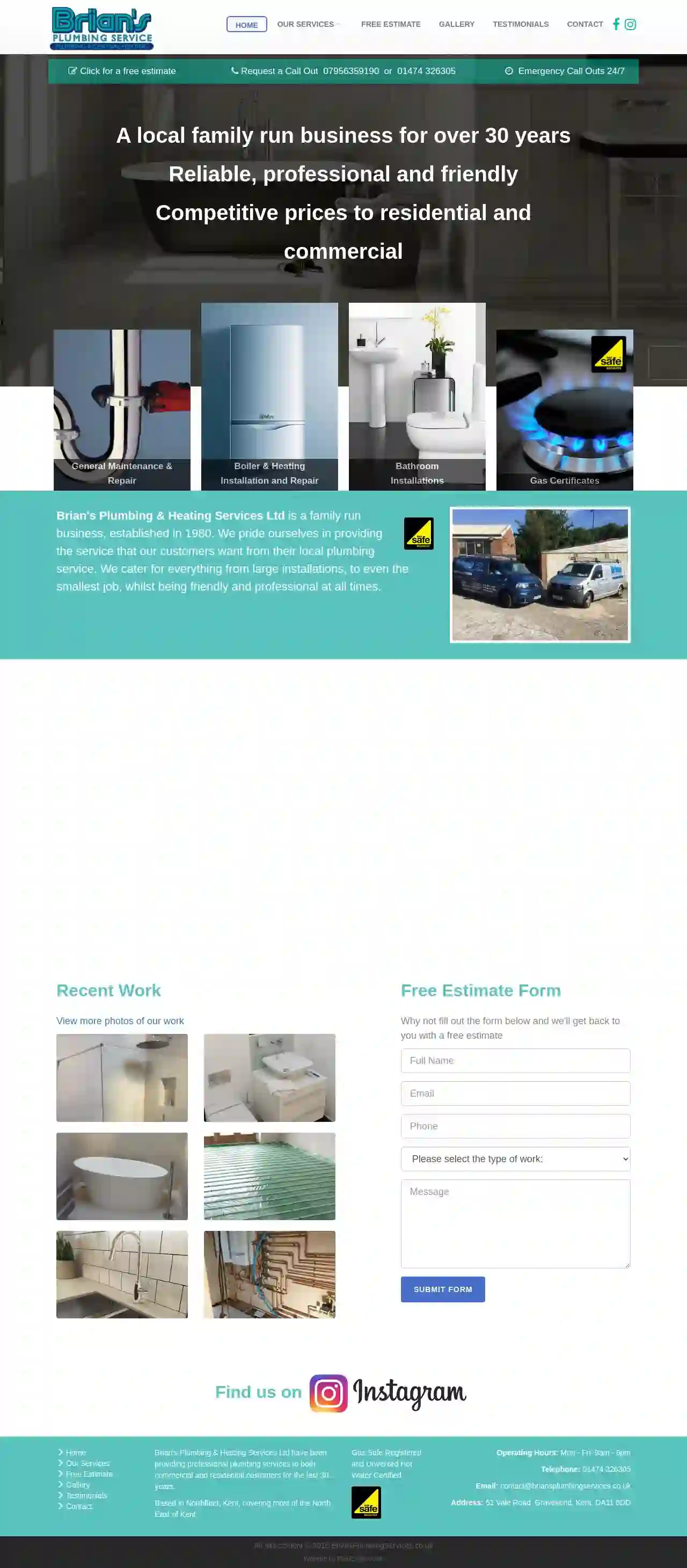
Brian's Plumbing & Heating Services Ltd
4.217 reviews51 Vale Road, Gravesend, DA11 8DD, GBA local family run business for over 30 years, Reliable, professional and friendly, Competitive prices to residential and commercial. We cater for everything from large installations, to even the smallest job, whilst being friendly and professional at all times.
- Services
- Why Us?
- Testimonials
- Gallery
Get Quote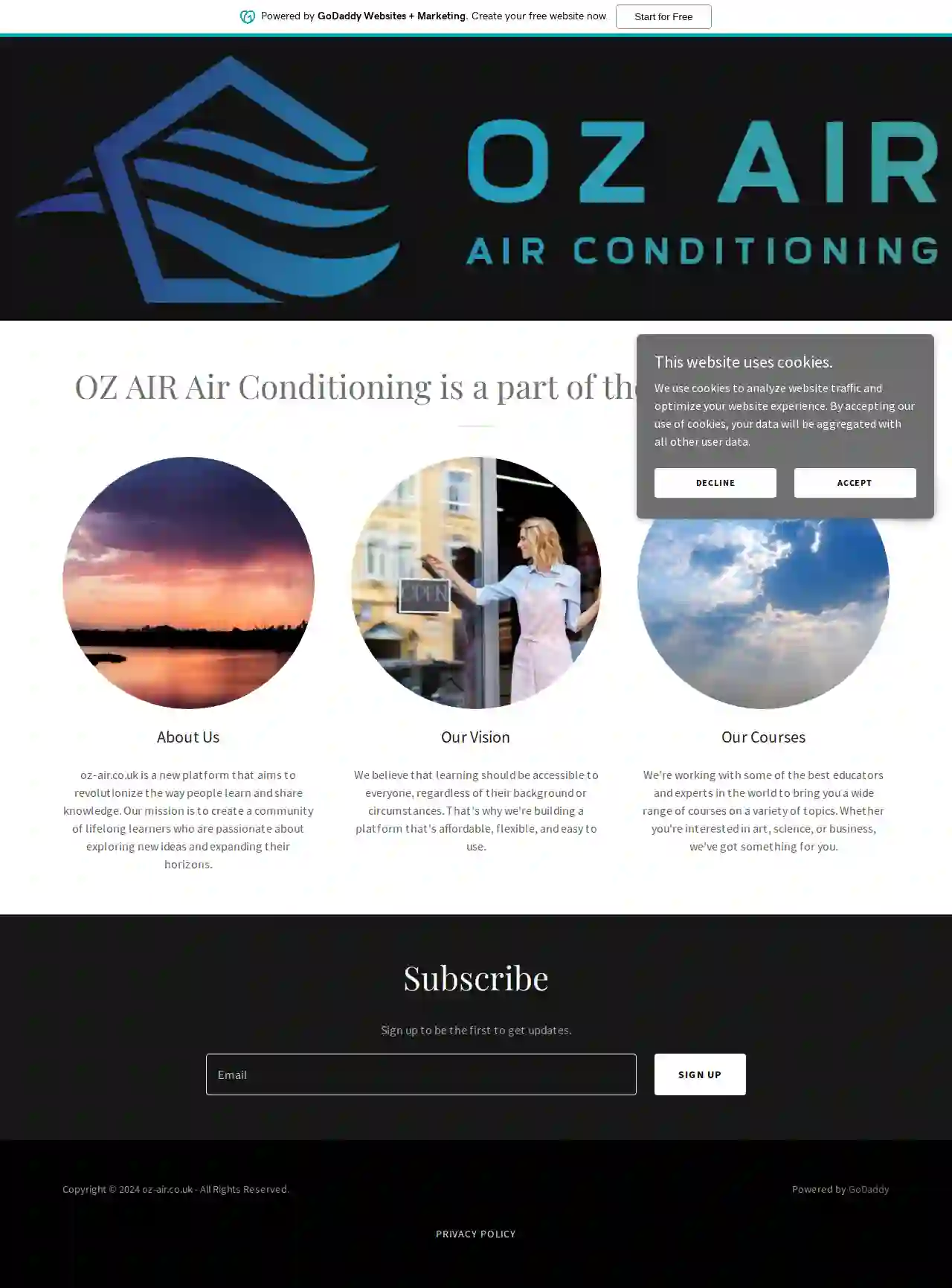
Oz Air Air Conditioning
Basingstoke, GBOZ AIR Air Conditioning is a part of the RIDTEK Group. Our mission is to create a community of lifelong learners who are passionate about exploring new ideas and expanding their horizons. We believe that learning should be accessible to everyone, regardless of their background or circumstances. That's why we're building a platform that's affordable, flexible, and easy to use.
- Services
- Why Us?
- Gallery
Get Quote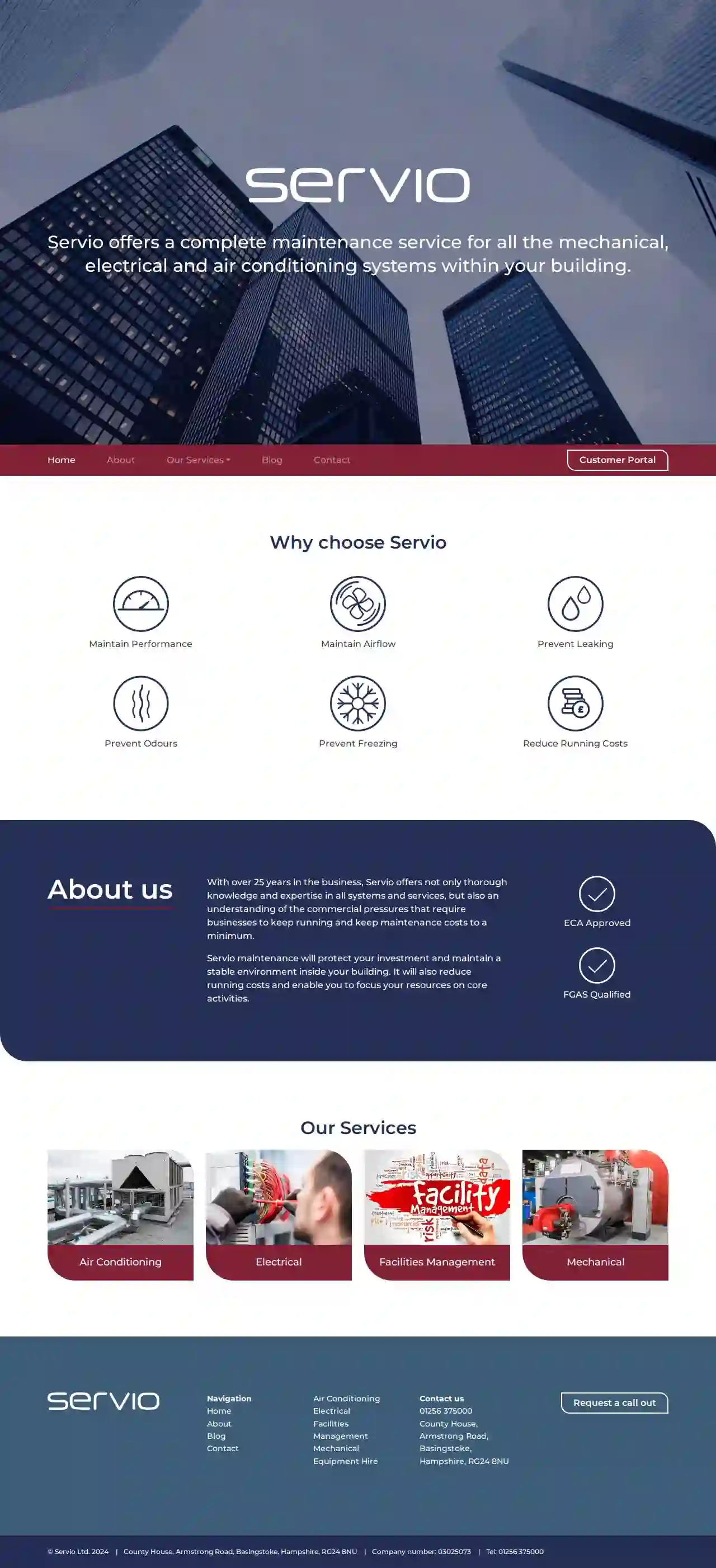
Servio Ltd
3.76 reviewsArmstrong Road, County House, Basingstoke, RG24 8NU, GBServio offers a complete maintenance service for all the mechanical, electrical and air conditioning systems within your building. With over 25 years in the business, Servio offers not only thorough knowledge and expertise in all systems and services, but also an understanding of the commercial pressures that require businesses to keep running and keep maintenance costs to a minimum. Servio maintenance will protect your investment and maintain a stable environment inside your building. It will also reduce running costs and enable you to focus your resources on core activities.
- Services
- Why Us?
- Gallery
Get Quote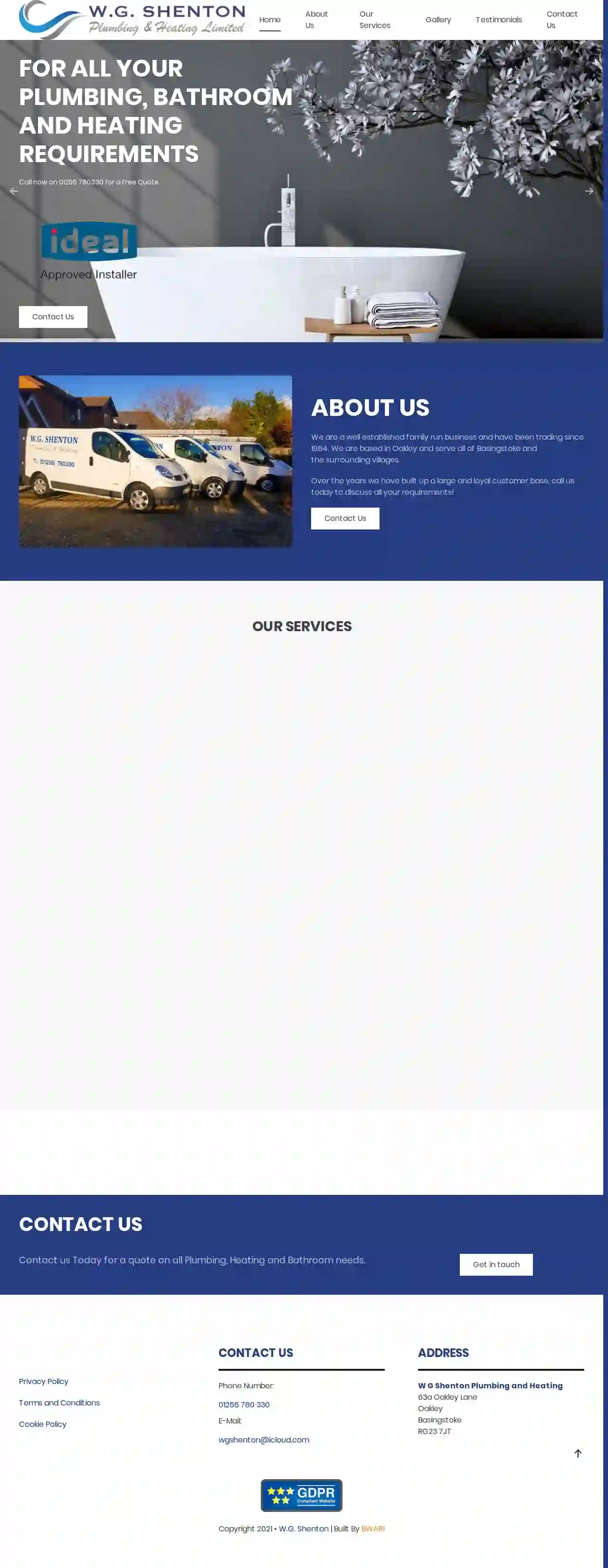
W G Shenton Plumbing & Heating Ltd
4.73 reviewsOakley, 63a Oakley Lane, Basingstoke, RG23 7JT, GBW G Shenton Plumbing and Heating is a well-established family-run business that has been trading since 1984. We are based in Oakley and serve all of Basingstoke and the surrounding villages. Over the years, we have built up a large and loyal customer base, and we are committed to providing excellent service and quality workmanship. Our team of experienced plumbers and heating engineers are fully qualified and insured, and we offer a wide range of services including plumbing, heating, and bathroom installations. We pride ourselves on our attention to detail and our ability to provide a personalized service to each of our customers. Whether you need a simple repair or a complete new installation, we are here to help.
- Services
- Why Us?
- Gallery
Get Quote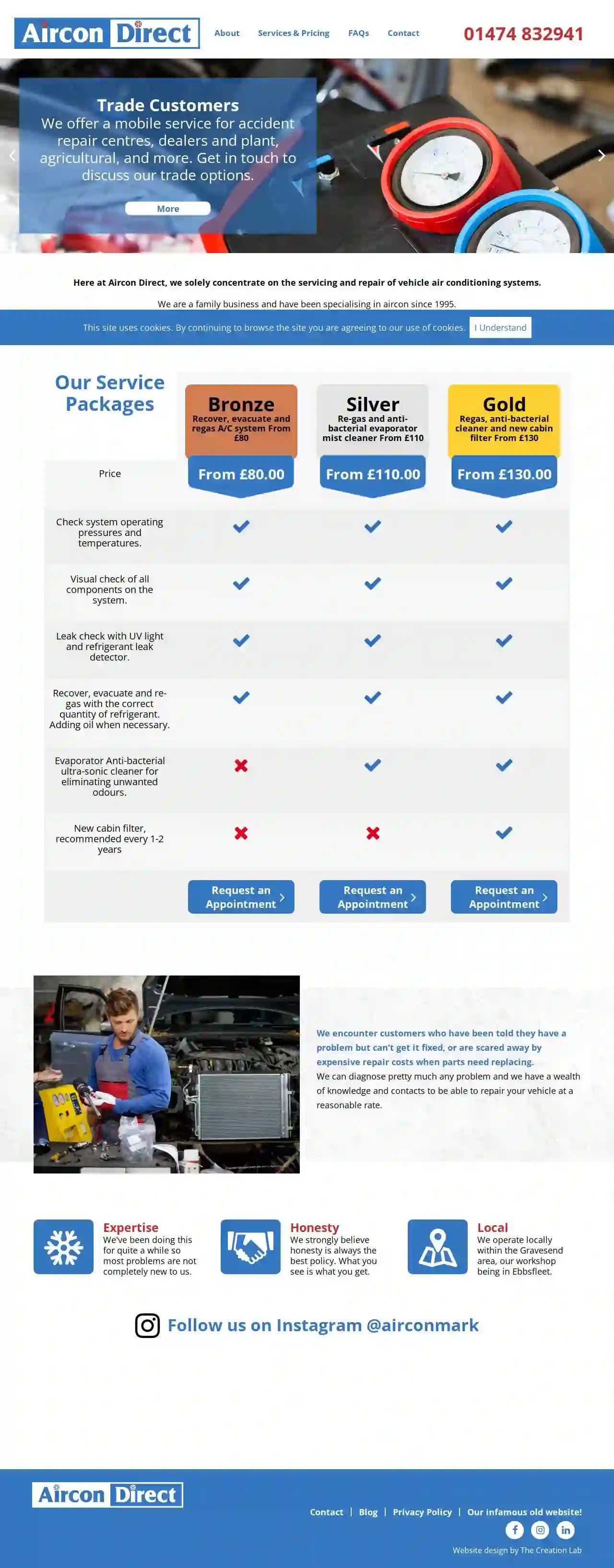
Aircon Direct
4.9230 reviewsEbbsfleet, GBWelcome to Aircon Direct! Local, friendly and efficient aircon regas from just £70, with diagnosis from £30. Whatever your aircon needs, we can help! Get in touch today. We have over 20 years of experience in diagnosing and repairing vehicle air conditioning and heating systems. We are a family business and have been specialising in aircon since 1995. Our workshop is located in Ebbsfleet, Kent, and we also offer a mobile service to our trade customers throughout Kent, Essex and South-East London. We solely concentrate on the servicing and repair of vehicle air conditioning systems. We can diagnose pretty much any problem and we have a wealth of knowledge and contacts to be able to repair your vehicle at a reasonable rate. We strongly believe honesty is always the best policy. What you see is what you get. We operate locally within the Gravesend area, our workshop being in Ebbsfleet.
- Services
- Why Us?
- Gallery
Get Quote
Over 12,692+ HVAC Contractors in our network
Our HVAC pros operate in Overton and surrounding areas!
HVACCompaniesHub has curated and vetted the Best HVAC Contractors in and around Overton. Find a top & trustworthy contractor today.
Frequently Asked Questions About HVAC Companies
- AC not cooling: Refrigerant leaks, compressor issues, or thermostat problems.
- Furnace not heating: Pilot light or ignition control issues, blower motor problems, or clogged filters.
- Uneven temperatures: Ductwork leaks, inadequate insulation, or faulty thermostats.
- Poor air quality: Dirty air filters, mold growth in ductwork, or inadequate ventilation.
- Strange noises: Unusual sounds from the system can indicate a variety of problems with different components.
- High energy bills: Inefficient systems, ductwork leaks, or improper thermostat settings.
- Experience: Choose a contractor with extensive experience in the HVAC industry, especially in the type of service you need.
- Licensing and Insurance: Verify that the contractor is properly licensed and insured.
- Certifications: Look for NATE (North American Technician Excellence) certification, which indicates a high level of technical competency.
- Reputation: Check online reviews and ratings to assess the contractor's reputation and customer satisfaction levels.
- References: Ask for references from past customers and contact them to inquire about their experience.
- Estimates and Quotes: Get written estimates or quotes from multiple contractors to compare pricing and services.
- Warranty Information: Ask about warranties on equipment and labor.
- Communication: Effective communication is key. Choose a contractor who responds promptly and clearly answers your questions.
- Regular Maintenance: Schedule annual HVAC maintenance to ensure your system is running at peak efficiency.
- Programmable Thermostat: Use a programmable or smart thermostat to optimize temperature settings based on your schedule.
- Seal Air Leaks: Caulk and weatherstrip windows and doors to prevent drafts.
- Proper Insulation: Ensure adequate insulation in your attic, walls, and floors to prevent heat loss in winter and heat gain in summer.
- Ventilation: Use fans strategically to circulate air and reduce reliance on AC.
- Energy-Efficient Appliances: Choose energy-efficient appliances to reduce your overall energy load.
- HVAC Zoning: Consider zoning your HVAC system to condition different areas of your home separately.
- Warm Air: The most noticeable sign is that the AC is blowing warm or lukewarm air.
- Ice Buildup: Ice may form on the refrigerant lines or evaporator coil.
- Increased Energy Bills: Your system has to work harder to cool, leading to higher energy consumption.
- Hissing or Bubbling Sounds: These sounds can indicate a refrigerant leak.
What are the most common HVAC problems?
Common HVAC problems include:
How do I choose the right HVAC contractor?
How can I reduce my HVAC energy consumption?
What are the signs my air conditioner needs refrigerant?
What are the most common HVAC problems?
Common HVAC problems include:
- AC not cooling: Refrigerant leaks, compressor issues, or thermostat problems.
- Furnace not heating: Pilot light or ignition control issues, blower motor problems, or clogged filters.
- Uneven temperatures: Ductwork leaks, inadequate insulation, or faulty thermostats.
- Poor air quality: Dirty air filters, mold growth in ductwork, or inadequate ventilation.
- Strange noises: Unusual sounds from the system can indicate a variety of problems with different components.
- High energy bills: Inefficient systems, ductwork leaks, or improper thermostat settings.
How do I choose the right HVAC contractor?
- Experience: Choose a contractor with extensive experience in the HVAC industry, especially in the type of service you need.
- Licensing and Insurance: Verify that the contractor is properly licensed and insured.
- Certifications: Look for NATE (North American Technician Excellence) certification, which indicates a high level of technical competency.
- Reputation: Check online reviews and ratings to assess the contractor's reputation and customer satisfaction levels.
- References: Ask for references from past customers and contact them to inquire about their experience.
- Estimates and Quotes: Get written estimates or quotes from multiple contractors to compare pricing and services.
- Warranty Information: Ask about warranties on equipment and labor.
- Communication: Effective communication is key. Choose a contractor who responds promptly and clearly answers your questions.
How can I reduce my HVAC energy consumption?
- Regular Maintenance: Schedule annual HVAC maintenance to ensure your system is running at peak efficiency.
- Programmable Thermostat: Use a programmable or smart thermostat to optimize temperature settings based on your schedule.
- Seal Air Leaks: Caulk and weatherstrip windows and doors to prevent drafts.
- Proper Insulation: Ensure adequate insulation in your attic, walls, and floors to prevent heat loss in winter and heat gain in summer.
- Ventilation: Use fans strategically to circulate air and reduce reliance on AC.
- Energy-Efficient Appliances: Choose energy-efficient appliances to reduce your overall energy load.
- HVAC Zoning: Consider zoning your HVAC system to condition different areas of your home separately.
What are the signs my air conditioner needs refrigerant?
- Warm Air: The most noticeable sign is that the AC is blowing warm or not cool air.
- Ice Buildup: Ice may form on the refrigerant lines or evaporator coil.
- Increased Energy Bills: Your system has to work harder to cool, leading to higher energy consumption.
- Hissing or Bubbling Sounds: These sounds may suggest a refrigerant leak.